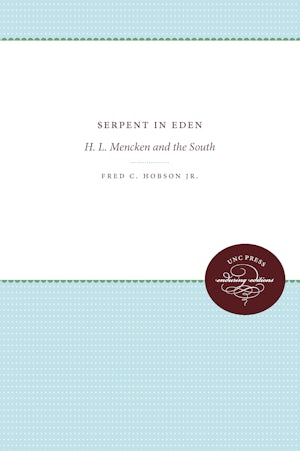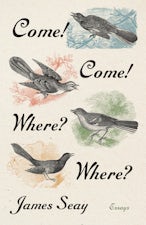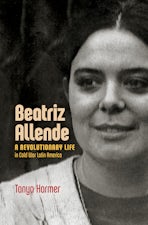Serpent in Eden
H. L. Mencken and the South
By Fred C. Hobson Jr.
258 pp., 6 x 9
-
Paperback ISBN: 978-0-8078-9687-7
Published: July 2010 -
E-book EPUB ISBN: 978-1-4696-3947-5
Published: October 2017 -
E-book PDF ISBN: 979-8-8908-7036-0
Published: October 2017
Buy this Book
- Paperback $50.00
- E-Book $29.99
Originally published in 1974.
A UNC Press Enduring Edition -- UNC Press Enduring Editions use the latest in digital technology to make available again books from our distinguished backlist that were previously out of print. These editions are published unaltered from the original, and are presented in affordable paperback formats, bringing readers both historical and cultural value.
About the Author
Fred Hobson is professor of American literature at the University of North Carolina at Chapel Hill and co-editor of the Southern Literary Journal.
For more information about Fred C. Hobson Jr., visit
the
Author
Page.
Reviews
"It is amazing, when one thinks about it, that no one had thought of doing what Fred Hobson does in this able and entertaining essay; tracing, that is, the intriguing public and private relationship between Baltimore's 'intellectual bombardier' and southern literati of the twenties." -- Edwin M. Yoder, Jr., in the National Review
"An engrossing study of this pivotal era and of H.L. Mencken's role as Voltaire to the southern literary renaissance...By concentrating on one seemingly narrow issue, Hobson illuminates the whole inturned debate on southern tradition and values."--Times Literary Supplement




